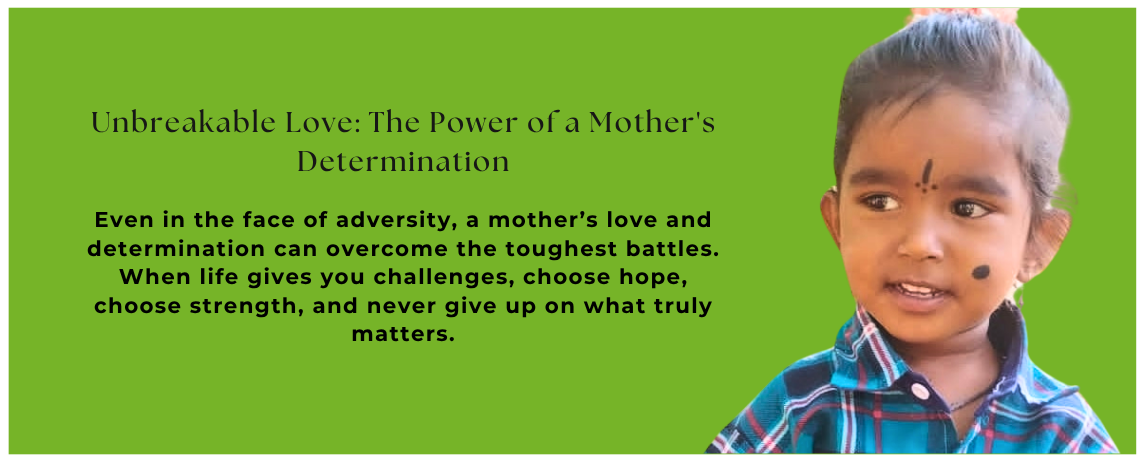
Like many families affected by thalassemia, Arpitha and Kanthraj were unaware of the genetic disorder affecting their children. Each child developed complications and did not survive beyond the first year. Despite multiple hospital visits, not a single doctor informed them about Thalassemia, leaving them in the dark about its consequences.
For the next two years, the couple decided not to have more children, fearing they would face the same heartbreaking challenges. But fate had other plans. During the lockdown, Arpitha found herself pregnant again. Her husband, fearing the risks, insisted they should not go through with the pregnancy. “No matter how many more children we have, they will all have the same problem and die,” he warned.
But Arpitha held on to hope, refusing to terminate. Their disagreement escalated into a bitter conflict, leading to an ultimatum—Kanthraj gave her a choice: him or the child.
She made her choice.
After Thippesh’s birth, Arpitha's father took her in, offering shelter and support. But life did not get easier. The baby developed persistent fevers, Arpitha feared for his life. A hospital in Bellary suspected thalassemia and referred her to the District Hospital in Tumkur.
Alone and struggling, she found hope with Sankalp India Foundation; we ensured that Thippesh received the diagnosis and medical care he needed. From transfusions to long-term support, Sankalp has been a pillar of strength in her darkest times.
Thippesh’s story goes beyond one child or one family—it highlights the urgent need for thalassemia awareness. So many families remain unaware of the disorder until tragedy strikes. This case showcases the importance of early diagnosis, genetic screening, counseling, and access to proper medical care.
For mothers like Thippesh’s, love knows no limits. And with Sankalp India Foundation by their side, there is hope for a healthier, brighter future.
